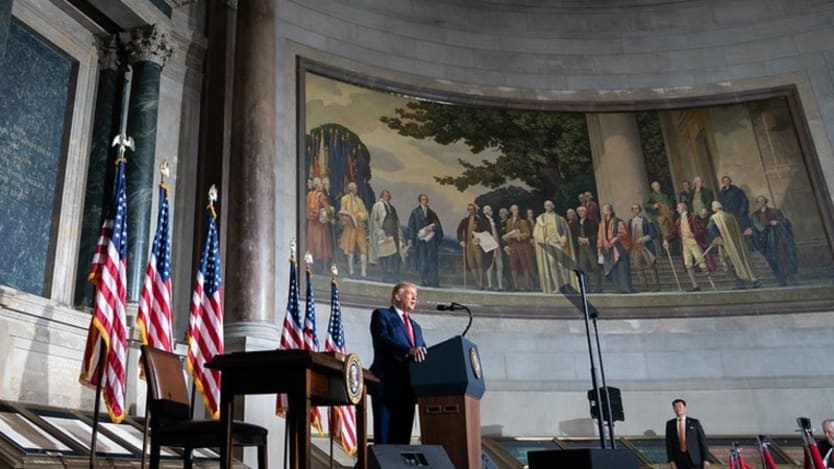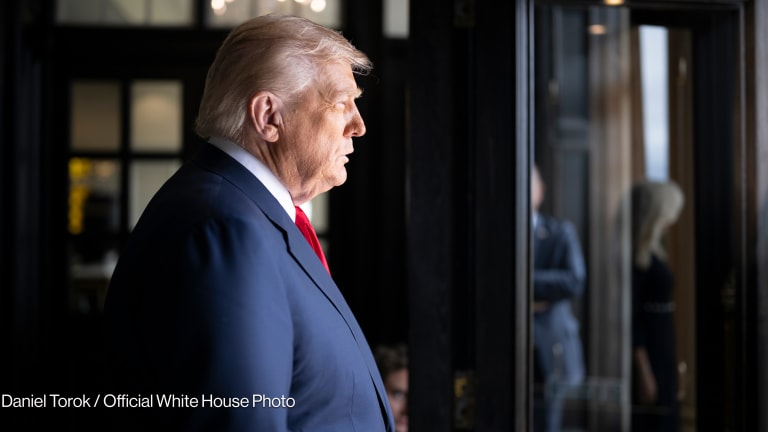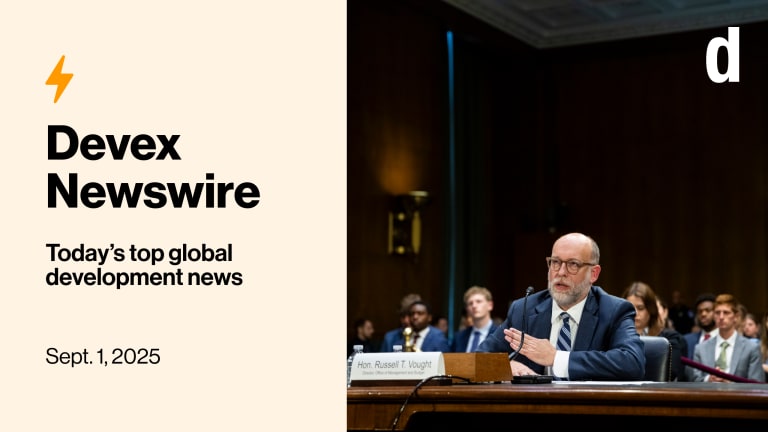
During its final weeks in office, President Donald Trump’s administration has ramped up foreign aid spending at the same time it pushes multibillion-dollar cuts, in what some warn is a late-stage attempt to push its own priorities over the finish line while depleting resources available for the incoming administration and overriding congressional authority.
In the last month, the U.S. Agency for International Development has sent an unusually large number of congressional notifications to Capitol Hill, which spell out the agency’s intent to make administrative changes or direct funding to specific countries and programs.
“There has been a significant uptick in the number of CNs,” a House Democratic aide wrote to Devex, referring to the “congressional notifications” USAID sends to committees to inform them of its plans to obligate funding.
A source with knowledge of the situation, who spoke on the condition of anonymity, told Devex the amount of funding included in the notifications “ballooned” to roughly $5 billion since the start of the 2021 fiscal year in October — far more than the $200 million to $400 million that USAID would typically spend during this period.
The breadth and amount of congressional notifications already raised suspicions, but more alarming was the possibility that the White House might ignore Congress’ customary right to place holds on funding or administrative actions in order to raise questions or resolve concerns about them.
Disrupt and compete: How Trump changed US foreign aid
We look back on how Donald Trump’s policies and worldview have reshaped U.S. foreign assistance.
USAID would usually consult with relevant congressional committees about planned funding — especially if asked to do so in an appropriations bill, send a congressional notification about its funding plans, and then give lawmakers 15 days to raise any questions or concerns before obligating the funding, the source said. This process is not legally required, but it has become an accepted practice.
One week ago, asked to explain the unusually large number of congressional funding notifications and to address concerns these could put at risk the consultative relationship between USAID and Congress, USAID acting spokesperson Pooja Jhunjhunwala wrote to Devex that “USAID very much respects the oversight role of Congress and long standing established procedures.”
She added that “Acting Deputy Administrator [John] Barsa will not be disregarding any holds by Congress on USAID’s congressional notifications, nor will he ask the State Department to do so on USAID’s behalf.”
Despite that assurance, multiple sources have confirmed to Devex that the U.S. Department of State has “blown” six congressional holds, five of which pertain to USAID.
“Ignoring the importance of the process and destroying long standing protocols between Congress and the executive branch … undermines the legislative branch’s important oversight responsibilities and erodes trust overall.”
— Eddy Acevedo, senior director of communications and policy, McCain Institute“Congress was informed that, notwithstanding the decision of Acting Deputy Administrator Barsa to honor five Congressional holds, Secretary [of State Mike] Pompeo overrode Barsa and directed that the funds be obligated,” a second person with knowledge of the situation told Devex in an email.
Devex could not verify the contents of all six congressional notifications, or the nature of the holds placed on them, but one of them relates to an outstanding piece of USAID’s reorganization, the creation of the Bureau for Policy, Resources and Performance, according to the source with knowledge of the situation.
It was not immediately clear whether the outgoing administration will have enough time to move forward with the funding and administrative changes before its term expires at noon on Jan. 20, or how quickly President-elect Joe Biden’s incoming administration might be able to reverse course.
The unilateral spending spree comes at the same time the White House is pushing a budget rescission, which would see roughly $17 billion in international affairs funding that Congress already approved pulled back from U.S. agencies. Lawmakers — and the incoming Biden administration — are expected to quickly reject that proposal.
USAID declined to provide an updated comment in light of the holds being blown and referred Devex to the Department of State. The State Department’s Office of Foreign Assistance also declined to comment.
Trump pushes foreign aid cuts as Biden pledges $11B
Even current administration officials admit that President Trump's parting shot at U.S. foreign assistance — a new rescission package that targets roughly $17 billion in international spending — can be easily reversed.
The source with knowledge of the situation noted that former President Barack Obama’s administration also ramped up spending before leaving office and blew congressional holds, but in both cases these represented a significantly smaller number and dollar amount than what the Trump administration has attempted.
The source added that there are two reasons why the administration has chosen to move forward with funding in the face of congressional objections.
“One is to tie the hands of the incoming administration. The second is there's a belief among some that Congress does not have the prerogative to make determinations regarding where funding goes,” they said.
Despite multiple attempts by the Trump administration to cut foreign assistance funding, U.S. development agencies have leaned on support from lawmakers in both parties to maintain their programs. USAID witnessed a significant reorganization under former Administrator Mark Green, which was only possible with Congress’ blessing.
“So many of the achievements we had at USAID were due to bipartisan support from Congress and mutual respect for the roles that each branch of government plays in policy making,” Eddy Acevedo, a former senior USAID official who is now senior director of communications and policy at the McCain Institute for International Leadership, wrote to Devex by email.
“Ignoring the importance of the process and destroying long standing protocols between Congress and the executive branch, such as by blowing Congressional holds, undermines the legislative branch’s important oversight responsibilities and erodes trust overall,” Acevedo added.
Update, January 19, 2021: This story has been updated to include more information about the Department of State’s actions.








